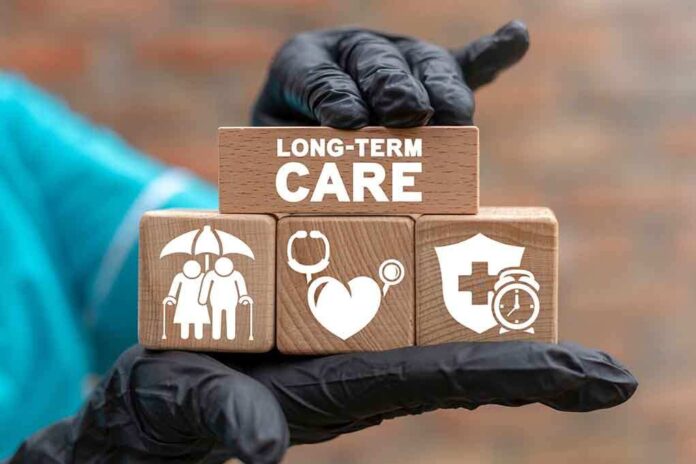
Governor Newsom’s Medi-Cal proposal forces California seniors to choose between basic financial security and healthcare while the state continues providing benefits to healthcare-enrolled undocumented immigrants.
Key Takeaways
- Governor Newsom proposes reinstating a $2,000 asset cap for seniors to qualify for Medi-Cal, reversing his previous policy that eliminated this restriction.
- The proposal would save $94 million this fiscal year and $791 million by 2028-29, while Medi-Cal costs have increased by $20.5 billion over the past decade.
- Critics argue the policy will disproportionately harm elderly and disabled citizens who depend on Medi-Cal while the state continues providing benefits to undocumented immigrants.
- Newsom has simultaneously proposed freezing new enrollment for undocumented adults to control soaring Medi-Cal costs.
- Health advocates warn the asset test could increase homelessness among seniors and disabled Californians, potentially costing the state more in the long run.
Newsom’s Reversal on Medi-Cal Asset Tests
In a striking policy reversal, California Governor Gavin Newsom has proposed reinstating an “asset test” for seniors and disabled individuals to qualify for Medi-Cal healthcare benefits. This requirement would limit program eligibility to those with less than $2,000 in assets – a threshold unchanged since 1989. The proposal comes just months after Newsom eliminated asset tests entirely in January 2024, following his earlier increase of the limit to $130,000 in 2022. This drastic reversal has left many elderly and disabled Californians who depend on the program facing potential loss of critical healthcare coverage.
The governor justifies this policy shift as necessary to address California’s budget shortfall and growing Medi-Cal costs, which have risen by $20.5 billion over the past decade. “None of this is the kind of work you enjoy doing, but you’ve got to do it. We have to be responsible. We have to be accountable. We have to balance the budget,” said Gavin Newsom, Governor of California.
Impact on California’s Most Vulnerable Citizens
The proposed asset test has sparked outrage among health advocates who argue it would force California’s elderly and disabled populations into extreme poverty to maintain healthcare access. Assets considered in the test include salary, bank accounts, cash, a second car, home value, and retirement funds. For many seniors who worked their entire lives and paid into the system, the restriction feels like a betrayal. Individuals like Cynde Soto, a quadriplegic on Medi-Cal, face losing their state health insurance because they have modest savings above the $2,000 threshold.
“It’s draconian — $2,000 is no safety net for people,” said Kim Selfon, an advocate for seniors and the disabled.
Richard Dallatorre, who requires caretakers due to his medical condition, expressed his frustration: “I worked 40 years of my life never receiving help, always paying taxes. I was glad to do it because I thought maybe when I need it, somebody will be able to help me. I didn’t know how stupid the system is.”
Undocumented Immigrants and Medi-Cal Funding Crisis
While proposing harsh restrictions for citizens, Newsom has only suggested freezing new enrollment for undocumented adults rather than eliminating their coverage entirely. California became the first state to offer healthcare coverage to all undocumented immigrants in January 2024, significantly expanding Medi-Cal enrollment beyond projections. The governor has now acknowledged that this policy is partially responsible for the program’s funding problems, yet his solution primarily targets legal residents who have paid into the system for decades.
“Gov. Newsom told reporters today CA’s healthcare coverage for undocumented people is ‘partially’ contributing to its Medi-Cal funding problems,” the governor admitted at a recent press conference.
The Long-Term Cost of Short-Term Savings
Critics warn that Newsom’s proposal may ultimately cost California more than it saves. Health advocates and lawmakers argue that forcing seniors and disabled individuals to deplete their modest savings will increase homelessness and push more people into nursing homes, which are far more expensive for the state than in-home care. The $2,000 asset limit is particularly unrealistic in California, where the cost of living far exceeds that of most other states and where a modest emergency fund is essential for basic security.
“This is going to lead to more homelessness of seniors and the disabled. That’s what’s going to happen, and that will cost our state money too,” warned Assemblymember Pilar Schiavo.
Disability Rights California didn’t mince words in their assessment: “While we understand the reality of budget shortfalls and that cuts will sometimes be necessary, the priorities and reality of this May revision are even worse than what we imagined. It demonstrates a continued willingness on the part of the governor to sacrifice the health and human services of California’s people, particularly the disabled, poor, and elderly populations of this abundant state.”












